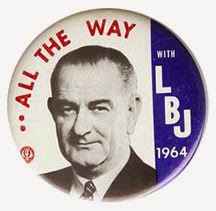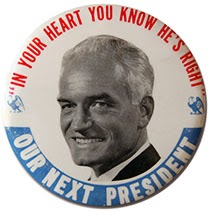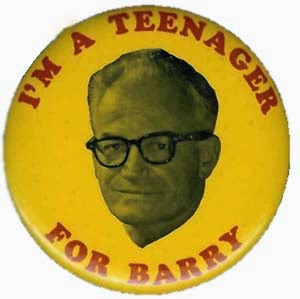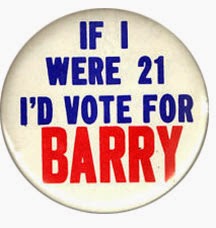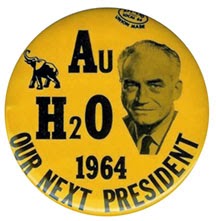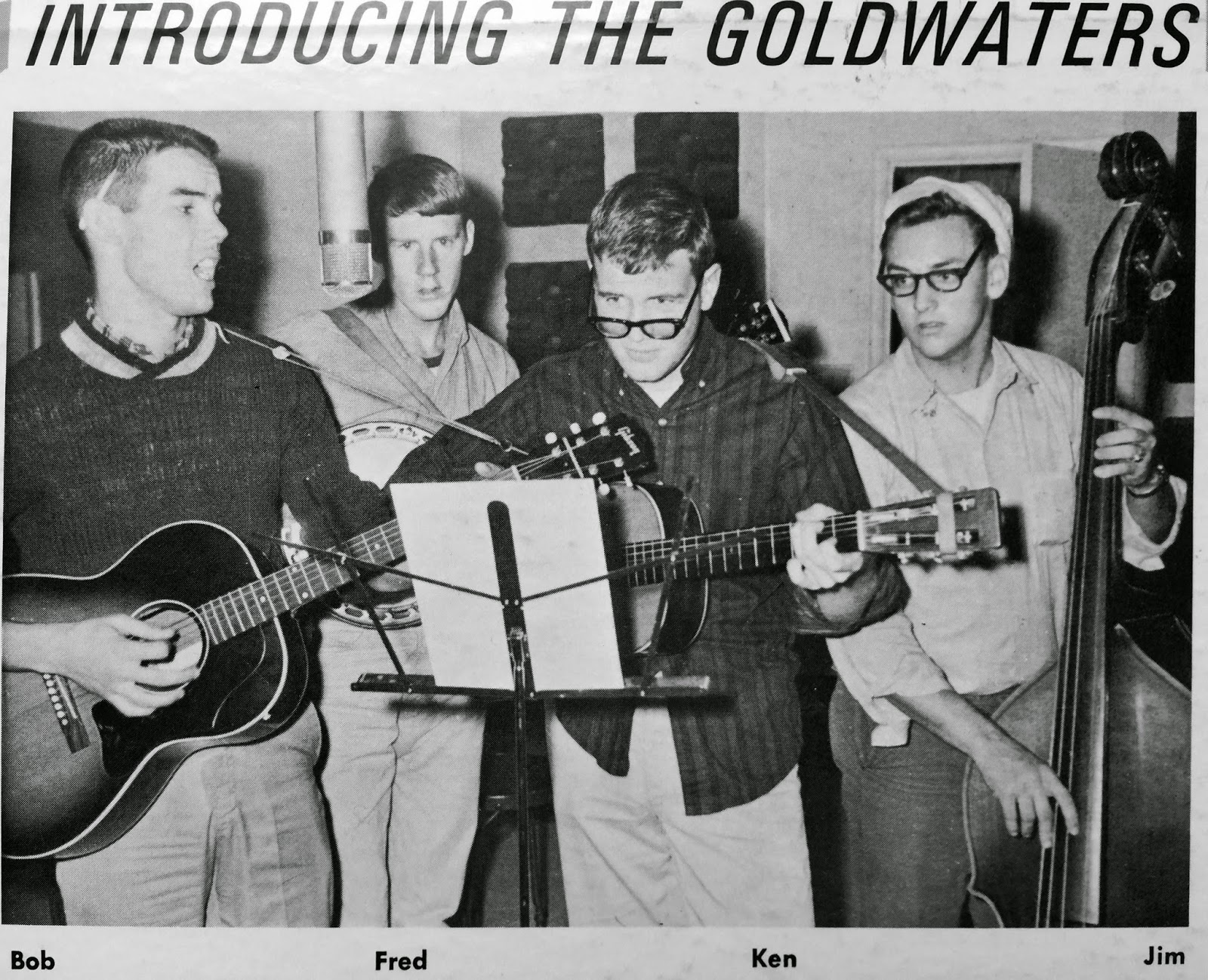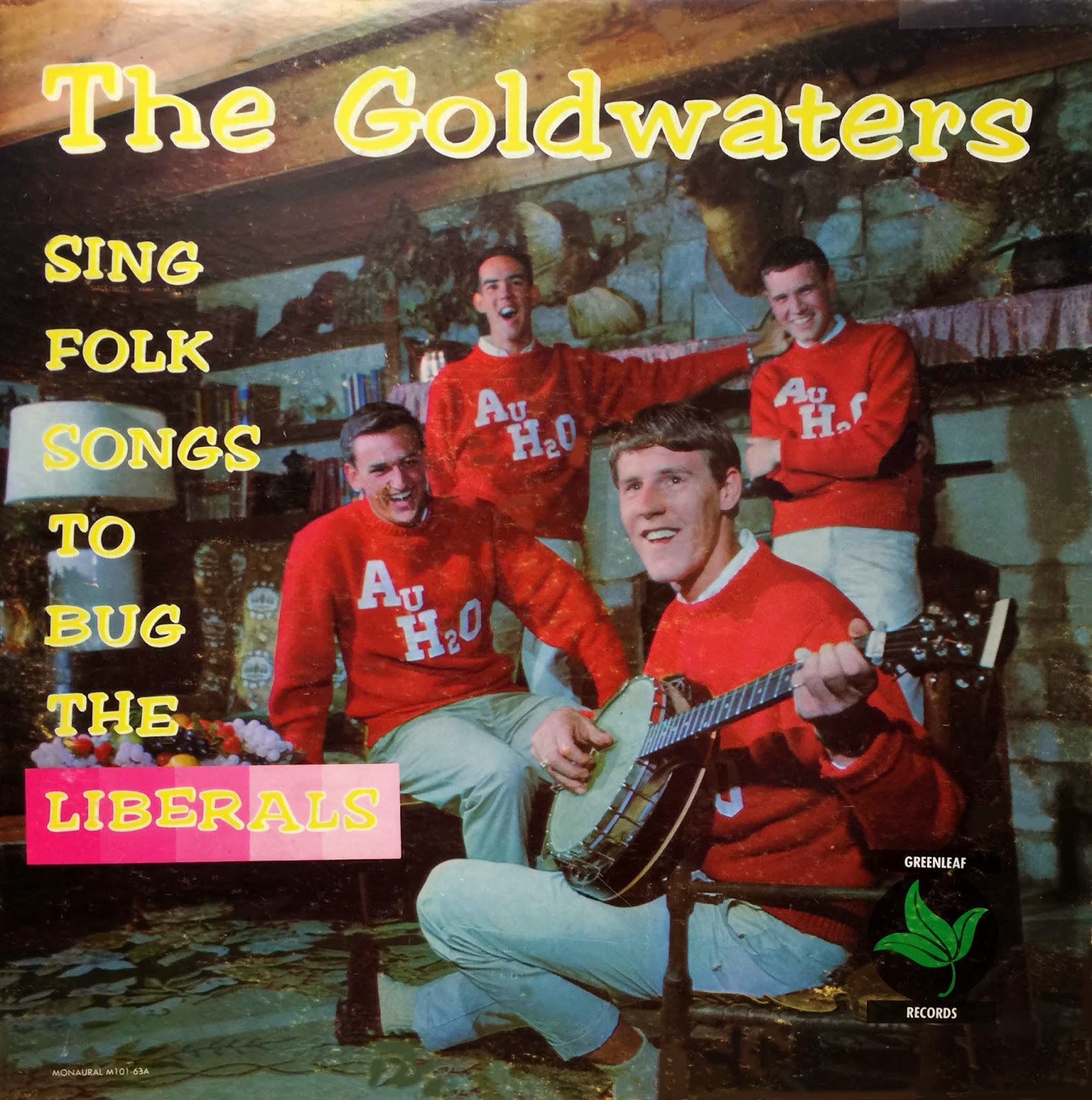The year is 1964. Lyndon Baines Johnson, a Democrat from Texas, is the President Of The United States, having ascended to that position following the assassination of President John Fitzgerald Kennedy on 22 November 1963. For some reason, pop culture gave both men nicknames based on the initials of their full names, LBJ and JFK. This is an election year, so LBJ is running for re-election. His Republican opponent, Senator Barry Goldwater from Arizona, will not defeat him. In fact, Barry Morris Goldwater (who was not called BMG, but rather Mr. Conservative) would end up losing the election on 3 November 1964 by the largest landslide since James Monroe’s re-election in 1820. The Johnson-Humphrey ticket won by 61.1% of the popular vote earning 486 electoral votes, well over the 38.5% popular vote and 52 electoral votes won by Goldwater-Miller. An estimated 61.9% of Americans of voting age cast a ballot in this election, just over 70 million people.
Despite the crushing blow, Barry Goldwater’s campaign is now seen as the catalyst that helped ignite the Conservative movement in America, culminating in the landslide victories of President Ronald Reagan in 1980 and 1984. Goldwater won the support of many Southern Democrats, which ultimately led many politicians along the Gulf coast to switch their party affiliation years later.
If you suspect that some politicians hold onto their jobs for a long time, you’re right. When Barry Goldwater left his Senate seat in 1987, he was succeeded by John McCain, who is STILL representing that state.
Barry Goldwater was born on 2 January 1909 in Phoenix, Arizona (before Arizona became a state). His father’s Jewish family had founded Goldwater’s, the largest department store in Phoenix, which made the family comfortably wealthy. He graduated from Staunton Military Academy, an elite private school in Virginia, and attended the University of Arizona for one year, joining the Sigma Chi fraternity. Barry took over the business when his father died in 1930. In 1934, he married Margaret “Peggy” Johnson, wealthy daughter of a prominent industrialist from Muncie, Indiana. They had four children, Joanne, Barry, Michael, and Peggy.
He served in the Air Force as a Lieutenant Colonel, and as a Colonel in the Arizona Air National Guard, and as a Major General in the United States Air Force Reserve. He saw combat both in World War II and Korea. He was an articulate and charismatic figure.
He did not attend church often, but considered himself to be a religious man. He once said, “If a man acts in a religious way, an ethical way, then he’s really a religious man.” He declared himself to be an Episcopalian, but on rare occasions, he was known to refer to himself as Jewish.
Barry Goldwater, a strong proponent of civil rights and racial equality, pushed the Pentagon to support desegregation of the armed services. Despite being called Mr. Conservative, he had a substantial impact on the Libertarian movement. He strongly opposed the New Deal programs introduced by President Franklin Delano Roosevelt in the 1930’s because they focused on creating government dependencies, using taxpayer money to create “make work” projects to put people to work, and expanding welfare for those who fell through the cracks. It also introduced the Wagner Act to promote labor unions, and gave birth to the Social Security Act, which is arguably the worst possible way to save money for your retirement ever conceived. The New Deal also established new government regulations on business, setting maximum work hours and minimum wages for most jobs. While the New Deal seemed like a good way to help America grow out of the Great Depression, it ended up being an economic failure. That set the stage for Republican gains in Congress in 1938, and also caused some Democrats to become more Conservative. By 1943, many of the work relief programs had been shut down. But America’s entry into World War II caused an economic upturn that finally led to sustained prosperity and full employment in the post-war years.
As you might expect, Democrats painted Barry Goldwater as a reactionary. His supporters, however, praised his criticism of the Soviet Union, labor unions, and the Welfare State. Following the crushing loss to LBJ in 1964, LBJ now had the political clout to introduce his own vision of the New Deal, calling his version the Great Society. It was another dramatic expansion of Liberal programs, again calling for greater numbers of Americans to become dependent on the Federal government, boosting the labor unions ability to extort employers for wage and compensation increases that were not competitively sustainable, and introducing mountains of regulations that would force many businesses and industrial operations to relocate overseas.
Barry Goldwater became an elder statesman. He urged Richard Nixon to resign in the wake of the Watergate scandal. The growing influence of the Christian Right in the 1980’s so conflicted with Barry Goldwater’s views that he became a vocal opponent of the movement, particularly on social issues now associated with Liberalism, such as abortion, gay rights, and the role of religion in public life.
This group of Barry Goldwater supporters had no idea what was coming in that 1964 election. They must have been crushed by the defeat. But, if they held on to their political convictions, they were no doubt quite pleased to watch the eventual rise of Conservatism with the election of Ronald Reagan.
The Goldwaters are:
Bob Green, singing tenor and playing guitar, from Valdosta, Georgia, who had moved to Nashville by the time this recording was made. He was a math major at David Lipscomb College.
Fred Quan from Bryn Mawr, Pennsylvania. He plays banjo and was a political science major at Belmont College in Nashville.
Kenneth Crook sings most of the lead material. He’s from Pulaski, Tennessee and attended Peabody College where he majored in music. He loved radio, and came to be recognized as one of the Mid-South’s leading announcers.
Jim VanTrease lived near Old Hickory Lake in Gallatin, Tennessee, played bass, and was a music theory major at Peabody College.
So, without further ado, let’s jump into the time machine, dial up Fall 1964, and listen in to some good old American folk music as the Goldwaters poke fun at the foibles of the Left Wingers!
President Barack Obama is clearly following in the footsteps of the Liberal rivals of Barry Goldwater. His expansion of government spending, business regulation, and the Welfare State, would have made both FDR and LBJ very proud. Perhaps the Liberals should review their history. Mr. Obama could very well be setting the stage for another Conservative upswell in America, maybe even leading us to the next Ronald Reagan.
One can only hope…

